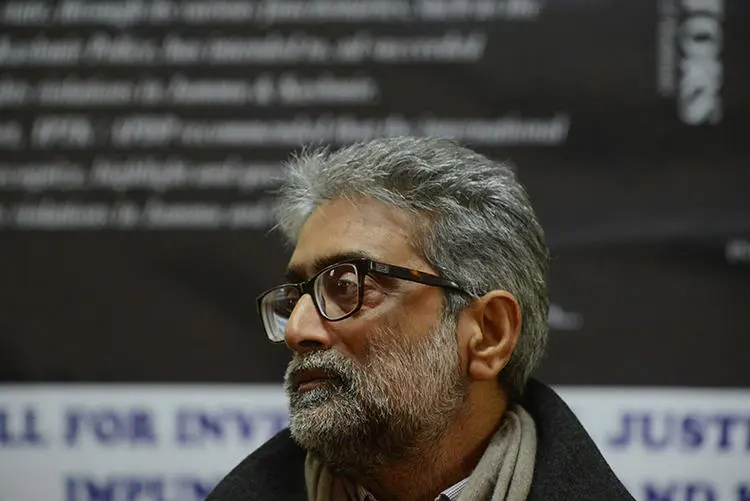New Delhi, April 9, 2020 — Indian authorities should stop pursuing the arrest of journalist Gautam Navlakha, and should cease holding journalists in jail during the COVID-19 pandemic, the Committee to Protect Journalists said today.
Yesterday, the Indian Supreme Court directed Navlakha to surrender to the Sessions Court in Pune, in western India, within one week in connection to charges relating to his alleged links to Maoist militants and being part of a conspiracy to assassinate Prime Minister Narendra Modi, according to news reports and Navlakha, who spoke to CPJ in a phone interview.
Navlakha is a columnist at the Newsclick news website, and was formerly an editorial consultant with Economic and Political Weekly, a peer-reviewed academic journal covering the social sciences, he said. He has written frequently on issues related to Kashmir and Maoist separatism.
Navlakha told CPJ that he maintains his innocence, but plans to surrender. He said he is worried about receiving a fair and speedy trial, and that he could be exposed to the COVID-19 virus while in prison. He said he could be held in the prison for years, as he is unlikely to receive bail due to the nature of the charges against him.
His lawyer, Nitya Ramakrishnan, argued that because Navlakha is 65 years old and suffers from heart ailments, “going to prison during this time of Coronavirus is virtually a death sentence,” according to legal news website Live Law.
“Sending Gautam Navlakha to jail at any time would be unjust and a clear effort to silence his critical writing. But for the Supreme Court and Indian authorities to insist on sending him to jail in the middle of a pandemic goes against their own directives and is a matter of life or death,” said Aliya Iftikhar, CPJ’s senior Asia researcher, in New York. “Journalism should not amount to a death sentence. Indian authorities should allow Navlakha to remain free and stop pursuing charges against him.”
Navlakha told CPJ that he believes he is being targeted for his work as a journalist and a human rights activist. Navlakha has been charged under the Unlawful Activities Prevention Act and various sections of the Indian Penal Code, according to news reports. If convicted, he could face up to seven years in jail and a fine to be decided by the judge, according to reports.
Navlakha was originally due to surrender on March 16, but was granted an extension to April 15; the judge refused to grant a further extension, according to Live Law.
Last week, the Supreme Court ordered defendants to be released on parole to relieve crowding in jails in order to contain the spread of COVID-19, according to news reports.
CPJ emailed the Ministry of Home Affairs for comment, but did not immediately receive a response.
